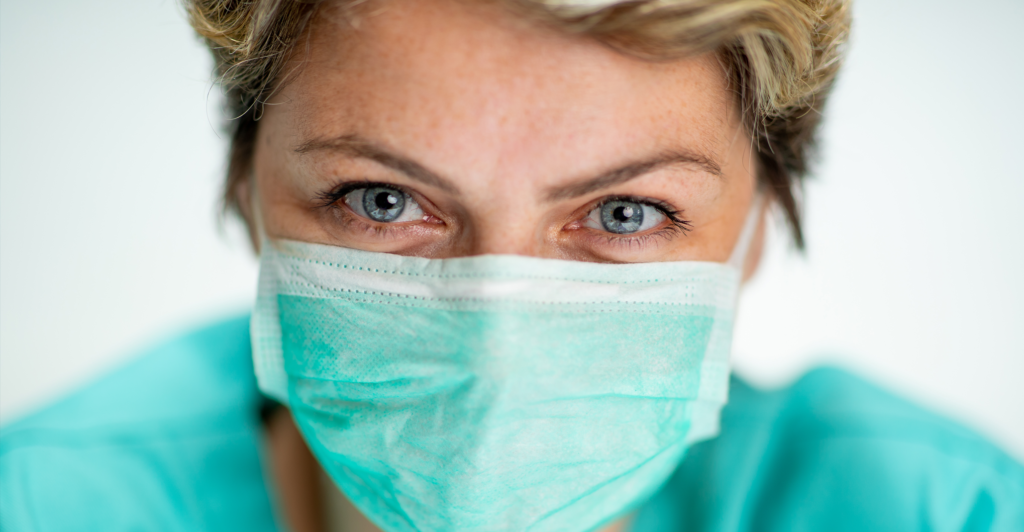Dr. Kapella answers your frequently asked questions.
There’s a lot of questions surrounding COVID-19, especially from older adults. Fairview Range’s Family Medicine & Geriatrics physician, Dr. Kasey Kapella, walks you through the most frequently asked questions and how you can be proactive about your health during this time.
Why are older adults and people with chronic health conditions at higher risk?
Older adults and people who have chronic medical conditions including heart disease, lung disease, diabetes, cancer, and hypertension are at higher risk for more serious COVID-19 illness and death. This is because our immune systems grow weaker as we age, which makes it more challenging for older adults to fight off infectious diseases. Chronic diseases also compromise the immune system and make people more vulnerable to serious complications.
How can I best protect myself?
COVID-19 is thought to spread mainly between people in close contact with one another through respiratory droplets from coughs or sneezes. It may also be transmitted when you touch a surface or object with the virus on it, then touch your mouth, nose, or eyes.
To prevent the spread of the virus, it is important to stay home and avoid crowds. If you do need to go out in public, practice social distancing (stay at least 6 feet apart) and wear a cloth face covering to help prevent the spread of the disease to others.
Proper handwashing is also imperative to preventing COVID-19 infection and spread. Wash your hands often with soap and water for at least 20 seconds, especially after blowing your nose, coughing, sneezing, or being in a public place. If soap and water are not available, use a hand sanitizer that contains at least 60 percent alcohol. Avoid handshaking and touching high-traffic surfaces in public places – for example, elevator buttons, door handles, handrails, or counters.
How can I actively manage my chronic medical problems at home?
In addition to the steps above to protect yourself against COVID 19, it is imperative that you continue to closely manage any other underlying medical problems. Exacerbations of chronic conditions can very commonly lead to severe illness, emergency room visits, and hospitalizations that may be preventable.
Continue to take your medications as prescribed. If you are running low on medications, please ask your physician or local pharmacy if delivery to your home is an option. Be sure you have over-the-counter medicines and medical supplies (fever reducers, tissues, hydrating beverages, etc.) to treat fever and other symptoms. If you have questions about your medications or which over the counter medications you can take, reach out to your primary provider’s office for clarification.
If you have high blood pressure or breathing problems, consider requesting a prescription for a home blood pressure monitoring kit or a pulse oximeter (this reads your blood oxygen level) from your primary provider’s office. These can be purchased at a pharmacy and can help you be proactive about any changes in your health.
Enlist a health buddy. This can be a spouse, friend, or other family member. Make sure that you and your buddy are checking on each other frequently during this time, especially if you’re living alone.
Although there is no vaccine available to prevent COVID-19, you should still ensure that you and your family’s vaccinations are up to date, including influenza (flu) and pneumococcal (pneumonia) vaccines. This will help reduce the pressure on the healthcare system by reducing vaccine-preventable diseases. Contact your provider’s office to set up a safe way to obtain these immunizations.
Many clinics are now offering virtual appointments to facilitate keeping patients home and safe. So, if you are noting a change in your health please continue to reach out to your primary provider’s office. That being said, not all concerns can be addressed appropriately in a virtual visit. An unfortunate side effect of the stay at home order has been that patients are presenting late for very necessary urgent medical care. This can delay treatment and worsen outcomes for patients.
If you or your provider feel you need to be seen in person, your clinic will provide a safe way to do so. If you are not sure what type of visit you need, your provider’s triage nurses will help you decide if you need to be seen in the clinic or if a telephone/video visit may be appropriate.
How else may I be proactive about my health during the COVID-19 pandemic?
Most people who contract COVID-19 will get a mild or moderate illness and will recover. However, some individuals (especially those with other medical problems) may become seriously ill. For many of these individuals, decision-making regarding invasive treatments will fall to their loved ones as they will be too sick to participate in these important discussions.
These situations are incredibly taxing on families always, but the COVID-19 pandemic has complicated these further. Most hospitals are currently not allowing visitors to limit exposures to COVID-19. This results in the need to facilitate very serious and difficult conversations about care for patients over a smartphone or laptop.
Under this current situation, it is more important than ever that your loved ones and healthcare team understand what matters most to you in the event that you become seriously ill. It is helpful to pick a loved one to be your decision maker in the event you become too ill to make your own decisions. Talk with them. Make sure they are comfortable taking on this role and understand your wishes.
Your health care team is also here to support you during this time to create a care plan that clearly identifies your wishes and what matters to you. They may offer a virtual visit to discuss these items specifically with you and make recommendations, if they are desired. A document of this care plan can then be placed in your medical chart for your cares teams to reference, if needed.
If you are not sure how to start the discussions around these concerns, please call your provider or reference one of the websites listed below.
The conversation project: https://theconversationproject.org/covid19/
Honoring Choices, Minnesota: https://www.honoringchoices.org/
What should I do if I get sick?
It is important to call a healthcare professional as soon as possible if you think you may have been exposed to COVID-19 and begin to develop symptoms.
If you develop emergency warning signs for COVID-19, call 9-1-1 and get medical attention immediately. In adults, emergency warning signs include:
- Difficulty breathing or shortness of breath
- Persistent pain or pressure in the chest
- New confusion or inability to arouse and/or
- Bluish lips or face
- Severe nausea, vomiting, diarrhea
Unless you need immediate medical care, you should stay at home to avoid spreading your illness. Stay in touch with others by phone or email (remember your health buddy mentioned earlier?). You may need to ask for help from friends, family, neighbors, community health workers, and others if you become sick. Determine who can provide you with care if your caregiver gets sick ahead of time.





